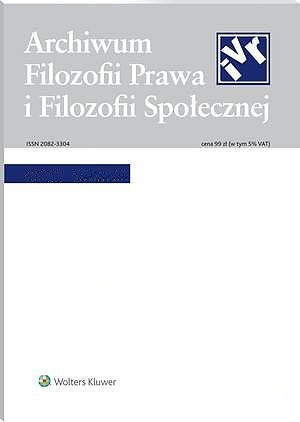Państwo prawa na gruncie filozofii politycznej Immanuela Kanta – dwie interpretacje
The Rule of Law in Immanuel Kant’s Political Philosophy: Two Interpretations
Author(s): Michał WieczorkowskiSubject(s): Law, Constitution, Jurisprudence, Philosophy of Law
Published by: Stowarzyszenie Filozofii Prawa i Filozofii Społecznej – Sekcja Polska IVR
Keywords: Kant; juridical state; rule of law; liberalism; authoritarianism
Summary/Abstract: The purpose of this article is to discuss Kant’s concept of juridical state as the foundation of the contemporary rule of law. Therefore, the article tries to answer two questions: (1) what character can be attributed to Kant’s concept of juridical state taking into account the obligations arising from it; (2) can the analysis of the Kantian juridical state have any impact on the contemporary understanding of the rule of law and if so, what can this impact be. In order to accomplish this task, moral presuppositions of Kant’s juridical state are discussed, according to the commonly accepted view that Kant’s political philosophy is closely linked with his moral and ethical reflection. Then, two interpretations of Kant’s juridical state – the liberal one and the authoritarian one – are analysed. The crucial difference between these interpretations lies in establishing the circumstances in which the duty of obedience to state power should be carried out. Then, Kantian juridical state is compared with two ways of understanding the rule of law – the material one and the formal one – in order to evaluate whether the rule of law should be considered as continuity of or rupture with the Kantian concept.
Journal: Archiwum Filozofii Prawa i Filozofii Społecznej
- Issue Year: 19/2019
- Issue No: 1
- Page Range: 108-124
- Page Count: 17
- Language: Polish

